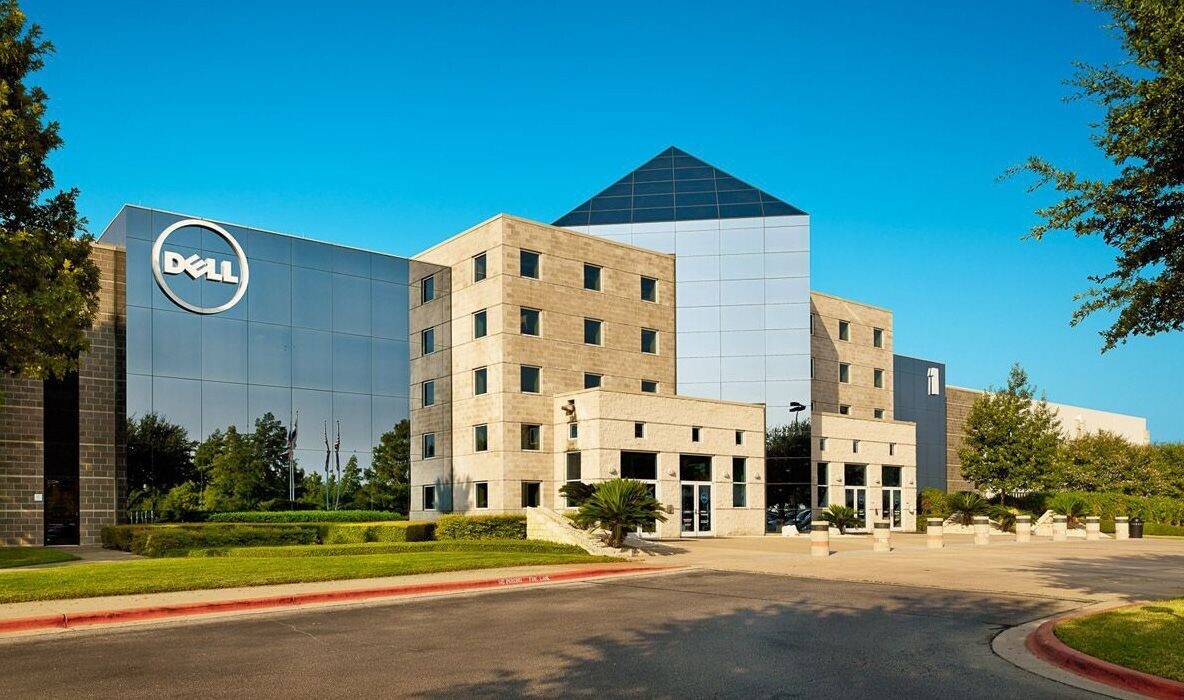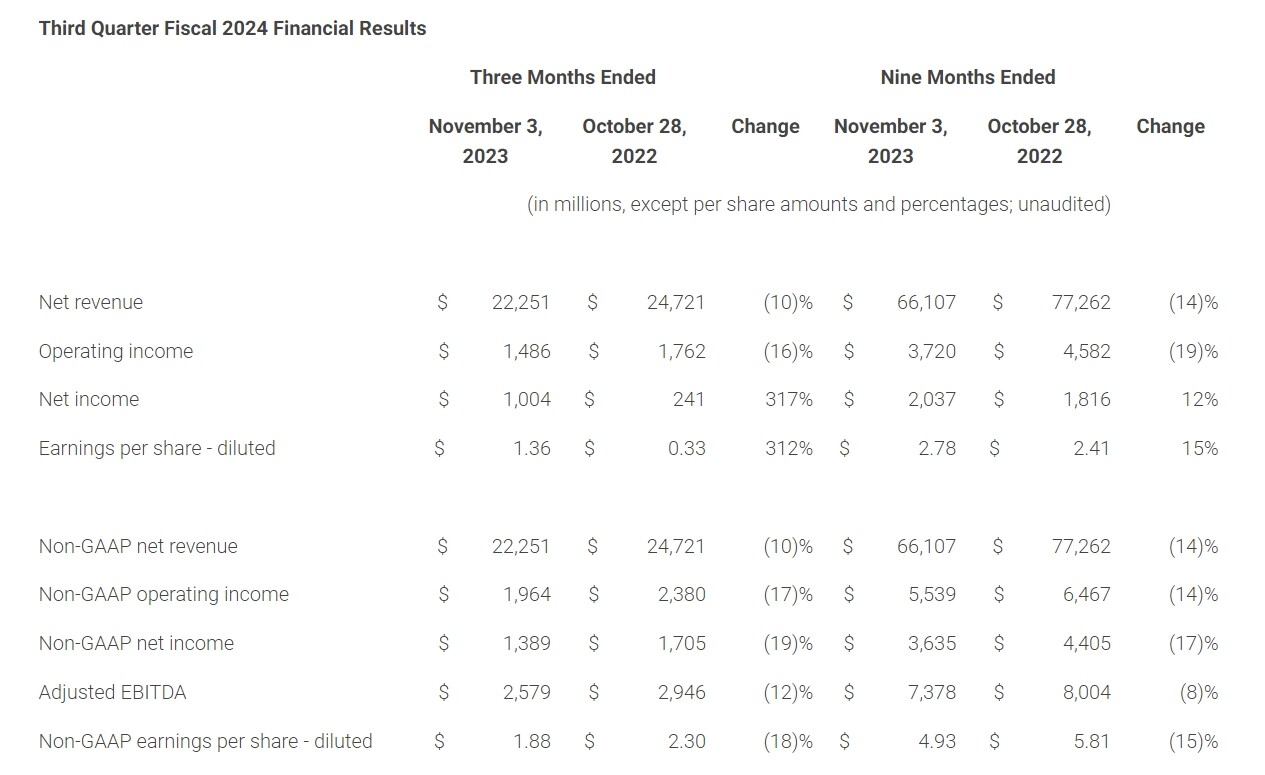Dell Technologies Announces Financial Results for Q3 2024
Dell Technologies has reported its financial results for the third quarter of fiscal year 2024. The company's revenue for the quarter was $22.3 billion, a decrease of 10% compared to the previous year. Operating income was $1.5 billion, down 16% year-over-year, while non-GAAP operating income was $2 billion, down 17% year-over-year. Diluted earnings per share were $1.36, and non-GAAP diluted earnings per share were $1.88. Cash flow from operations for the quarter was $2.2 billion, driven by profitability and strong working capital performance. Over the past 12 months, the company has generated $9.9 billion in cash flow from operations.
At the end of the quarter, Dell had remaining performance obligations of $39 billion, recurring revenue of $5.6 billion (a 4% increase year-over-year), and deferred revenue of $29.1 billion (a 7% increase year-over-year), primarily due to growth in software and hardware maintenance agreements. The company's cash and investment balance was $9.9 billion.
"We have demonstrated our ability to generate strong cash flow through profitability and working capital efficiency, including $9.9 billion of cash flow from operations over the past twelve months," said Yvonne McGill, Chief Financial Officer of Dell Technologies. "Our long-term financial framework and capital allocation plan continue to deliver results, with $1 billion returned to shareholders in the third quarter through share repurchases and dividends."
The Infrastructure Solutions Group reported third quarter revenue of $8.5 billion, remaining flat sequentially and down 12% year-over-year. Servers and networking revenue was $4.7 billion, with a 9% sequential growth driven by AI-optimized servers. Storage revenue was $3.8 billion, down 8% sequentially, but with strong demand in unstructured data solutions and data protection. The operating income for this group was $1.1 billion.
The Client Solutions Group reported third quarter revenue of $12.3 billion, a decrease of 11% year-over-year and 5% sequentially. Commercial client revenue was $9.8 billion, and consumer revenue was $2.4 billion. The operating income for this group was $925 million.
"Technology is everywhere, and we continue to focus on extending our leadership positions and turning new opportunities into incremental growth," said Jeff Clarke, Vice Chairman and Chief Operating Officer of Dell Technologies. "Our servers and networking business was up 9% sequentially fueled by customer interest in generative AI. And heading into FY25, we expect revenue growth given the tailwinds to our business."
Dell has expanded its portfolio to help customers meet their performance, cost, and security requirements across clouds, on premises, and at the edge. The Dell Generative AI Solutions portfolio now includes new on-premises offerings that simplify GenAI implementations with high-performing IT infrastructure, multicloud access, and professional services.
One of these offerings is the ObjectScale XF960, an all-flash, scale-out appliance for GenAI and real-time analytics. It is based on Dell's software-defined object storage software and can run on Linux and Red Hat Open Shift on PowerEdge servers.
Dell has also collaborated with Meta to make it easier for customers to deploy Meta's Llama 2 models on premises using Dell's GenAI portfolio of IT infrastructure, client devices, and professional services. Additionally, Dell's collaboration with Hugging Face allows enterprises to create, fine-tune, and implement their own open-source GenAI models with the Hugging Face community on Dell infrastructure products and services.
Dell's APEX Cloud Platform for Microsoft Azure simplifies the hybrid cloud experience by helping customers extend Azure to data center and edge locations. The APEX Cloud Platform for Red Hat OpenShift, on the other hand, is the first fully integrated application delivery platform designed for Red Hat OpenShift, enabling customers to deploy, manage, and run containers alongside virtual machines on premises.
Lastly, Dell's Precision 7875 Tower is its most scalable and powerful AMD processor-based workstation. It allows companies to develop and fine-tune complex GenAI models locally before deploying them at scale.


